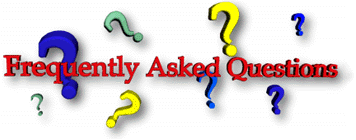
How would you describe the Old Testament books?
The Old Testament (Pentateuch) consists of thirty-nine books and can be categorized in this way:
Law - Five books:
In Genesis the world was created. Exodus is the record of Israel's birth of a nation. Leviticus contains the law; Numbers is the book of wanderings (tribes). In Deuteronomy once again we are implored to keep God's law. These five books of Moses are described as the oldest writings known.
Historical - Twelve books: The very brave Joshua to Canaan leads. In Judges the Jews often rebel. In Ruth we read of David's name, also in 1 and 2 Samuel. In 1 Kings we learn about how bad the Hebrew state became in their rebellion. In 1 and 2 Chronicles more focus on the Hebrew peoples. In Ezra the captive Jews return and Nehemiah builds the wall of Jerusalem. Esther; Queen Esther saves her race from death.
Poetical - Five books: In Job we read of patient faith.
In Psalms we find David's songs of praise. Psalms explores the full range of humans experience in personal and practical ways including diverse topics, such as jubilation, war, peace, worship, judgment, messianic prophecy, praise and lament. The Proverbs are to make us wise; Ecclesiastes next portrays haw vain and temporary earthly pleasures are. The Song of Solomon is all about God's love.
Prophetical - Seventeen books: (Five Major books and twelve Minor books
Isaiah tells of Christ to come. This book reveals the Messiah of Israel (Isaiah 53).
Jeremiah, broken-hearted, tells of the sorrows to come upon Judah.
In his Lamentations, Jeremiah mourns for the Holy City's overthrow.
Ezekiel uses prophecies, parables, signs and symbols to dramatize God's message to the exiled people. Though they are like dry bones in the sun, God will reassemble them and breathe life into the nation once again. The present judgment will be followed by future glory so that "you shall know that I am the LORD'" (Ezekiel 6:7). He prophesies the battle of Ezekiel 38 and 39, a future war when God will save the Jewish nation from a contingency of primarily Muslim invaders.
Daniel was God's prophetic mouthpiece to the gentile and Jewish world declaring an eternal purpose. Daniel shows God's guidance, intervention, and power in the affairs of men.
Hosea calls for mankind to repent.
In Joel, judgments are prophesied.
Amos tells of God's judgment to a rebellious Israel.
Obadiah warns of the coming judgment on Edom, which he saw in a vision.
Jonah is called by God to teach repentance to the wicked Ninevites, the prophet knows that God's mercy may follow. But Jonah defies God until He deals with him, which causes Jonah to repent.
Micah delivers a stern message of judgment to the princes and people of Jerusalem.
In Nahum, the problems with Ninevah are seen.
In Habbakuk, the rebellion and sin of the Chaldeans is addressed.
Zephaniah deals with Judah's sins.
In Haggai the temple is rebuilt now that Jews who had been captive have returned back to the land from Babylon.
Zechariah tells of Christ.
Malachi speaks of the future coming of John the Baptist.